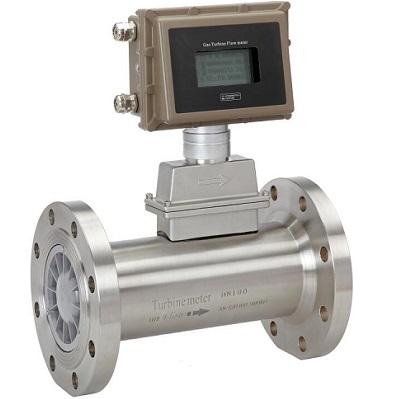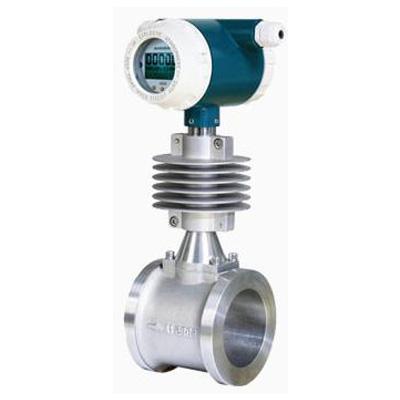Blog Information
- Posted By : Baby wu
- Posted On : Aug 06, 2022
- Views : 253
- Category : Travel
- Description : The installation of the portable ultrasonic flowmeter couldn't be any easier, and neither could its operation
Overview
The installation of the portable ultrasonic flowmeter couldn't be any easier, and neither could its operation. Drinking water, river water, sea water, cooling water, hot water, industrial sewage, lubricating oil, diesel oil, fuel oil, chemical liquids, and other types of liquids are examples of fluids that are ideally suited for flow balance testing and flow monitoring.
A portable ultrasonic flowmeter is a type of instrument that measures the flow of liquid by observing how an ultrasonic beam influences the flow of the liquid being measured. It is a contact meter that can measure the flow of a medium with a large diameter. Additionally, it can be used for the measurement of a medium that is difficult to touch and observe. Both of these functions are possible with this device. In addition to this, its accuracy of measurement is extremely high, and it is hardly affected by the various parameters of the medium being measured.
According to the principle of signal detection, portable ultrasonic flowmeters can be broken down into a number of subcategories. These include the propagation ultrasonic level sensors velocity difference method (also known as the direct time difference method, the time difference method, the phase difference method, and the frequency difference method), the beam shift method, the Doppler method, the cross-correlation method, the spatial filtering method, and the noise method, among others.
The time difference method involves calculating the velocity of the measured fluid by first measuring the time difference that results from the different propagation velocities experienced during forward and reverse propagation.
The phase difference method involves measuring the speed at which the phase difference that is brought on by the difference in time between forward and reverse propagation is calculated.
The frequency difference method involves measuring the difference in frequency that exists between the forward and reverse propagation of the acoustic ring.
Following these steps will allow you to successfully install the sensor in the portable ultrasonic flowmeter:
Pick a spot that has a sufficient length of straight pipe, preferably one that is brand new, rust-free, and simple to operate. The use of an angle grinder is recommended for cleaning rust and debris from pipe systems. It is necessary to apply a sufficient amount of couplant (such as butter, Vaseline, or other similar products) to the emitting surface of the sensor in order to eliminate the air that is located in the space between the emitting surface of the sensor and the outer surface of the pipe.
Calculating the Cost of a Portable Ultrasonic Flow Meter
There is a possibility that some air bubbles have been left behind on the upper portion of the interior wall of the pipe running horizontally. When installing something on a pipe like this, the surface that is perpendicular to the pipe's side should be chosen as the installation spot. The following are some of the more common causes of faults and methods for troubleshooting portable ultrasonic flowmeters:
1. There is a disconnect and reconnect of the connection between the transducer and the host because there is no signal.
2. The signal strength is insufficient; there is contamination in the power supply; the position of the transducer shiftsAdjust the position of the transducer again.
3. Both the instantaneous flow and the accumulated flow are inconsistent; the host is broken; the host should be replaced.
4. The instantaneous flow is constant, 0; however, it is greater than the actual value; this indicates that the transducer sound wedge low temperature pressure transducer is broken; the transducer should be replaced.
In order to be considered a genuine manufacturer of intelligent electromagnetic flowmeters, one needs to understand the principle behind these meters. The electromagnetic induction principle developed by Faraday is the foundation upon which the intelligent electromagnetic flowmeter's operating principle is built. The conductive medium in the measuring tube of an intelligent electromagnetic flowmeter is analogous to the conductive metal rod used in the Faraday test. Additionally, the two electromagnetic coils located at the upper and lower ends of the device generate a magnetic field that is always present. An induced voltage is produced whenever a conductive medium is in motion, and the induced voltage is measured by the two electrodes located inside the pipe. A non-conductive lining inside the measuring pipe creates an electromagnetic barrier that separates it from the fluid being measured and the electrodes used for the measurement.
The body, the electrode, the lining, and the converter make up the majority of the components of the intelligent electromagnetic flowmeter. Other components include the lining. The majority of the body is constructed out of carbon steel, with stainless steel serving as the secondary material. Rubber lining and tetrafluoro lining make up the majority of the material that makes up the lining. Rubber lining is generally appropriate for use with media that is resistant to wear. The majority of the rubber lining cryogenic flow meter is composed of polyurethane rubber and neoprene rubber. Polyurethane rubber is an excellent choice for use in environments with high levels of wear. The tetrafluoroethylene substrate is primarily composed of polytetrafluoroethylene and polyperfluoroethylene propylene, and the material of polytetrafluoroethylene propylene is suitable for use in environments with high levels of abrasiveness.
Electrode materials can be primarily categorized as molybdenum-containing stainless steel, Hastelloy B, Hastelloy C, titanium tantalum, stainless steel carbide Wu, and other subcategories. The intelligent electromagnetic flowmeter is able to process a variety of products based on the specific conditions of the working environment. Second, the intelligent electromagnetic flowmeter must have a patent certificate in order to function, and the original equipment manufacturer is the only company that can provide multiple professional certificates. The most reassuring intelligent electromagnetic flowmeter manufacturers are those that have been awarded these certifications.
